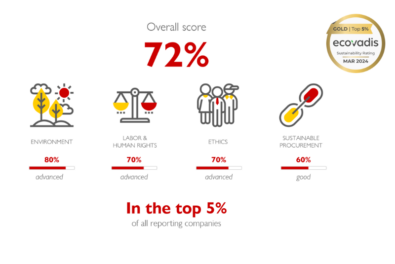While technology and artificial intelligence (AI) continue to reshape our work and daily routines, many businesses are still reluctant to harness this technology’s potential. A recent study by Crown Records Management reveals that almost half (49%) of UK businesses are sticking to traditional document storage systems, despite 48% acknowledging challenges in quick access and 46% facing storage space issues.
Information isn’t just the glue that binds human relationships and business processes together – it has become a valuable commodity in modern economies. One of the key distinctions between a thriving business and a failed one is the former’s ability to comprehend and take advantage of information, as discussed in the following sections.
Written by Kubair Shirazee

Kubair Shirazee, Enterprise Agility Coach and Founder of AgiliTea, discusses the biggest problems businesses face with data storage and how to fix them.
1. Scalable document management
Scalability guarantees that your digital record-keeping system can handle a growing number of records without impacting performance or requiring a complete overhaul. It means the system can maintain consistent performance even with more records or increased user activity. This ensures that users can access and modify records easily, enhancing productivity and user satisfaction.
Scalability is vital for record digitisation because it ensures your system can expand, adjust, and perform well as your organisation’s record-keeping needs evolve.
 2. The efficiency paradigm
2. The efficiency paradigm
Every business’ goal should be striving for effectiveness and efficiency, as it means achieving optimal results with the right amount of time and effort. Digitising systems, processes, and workflows centralise everything, providing remote access and enabling more coherent operations with a single source of truth.
This digital transformation empowers them to be proactive rather than reactive, as they can monitor real-time developments within the organisation. Most importantly, going digital allows employees to focus on their core tasks without constant firefighting, excessive emails, or data input.
Digitisation is equally valuable from a customer service perspective because it’s easier for frontline staff to communicate with management and obtain answers. Information is readily available through dashboards, promoting seamless information flow between employees, managers, and departments.
3. Technology and records compliance
Compliance is a major incentive for companies to adopt digital technology, particularly in an era in which GDPR imposes hefty penalties for mishandling personal data or experiencing data breaches.
With digital tools, data can be automatically categorised and assigned role-based permissions, restricting access to authorised individuals, and preventing actions like printing, editing, emailing, or content deletion. The capability to redact sensitive information from essential documents is crucial, especially when disclosing personal data in response to subject access requests.
Furthermore, audit trails provide transparency by revealing who has accessed specific electronic files, detailing any modifications made and their timestamps. Compliance is a universal concern across industries, from manufacturing and financial services to the legal sector.
Misplacing, losing, or incorrectly sharing information can significantly affect a business’s reputation and finances. The inability to provide relevant customer information upon request may also lead to GDPR-related issues.
 4. Time and money
4. Time and money
Indeed, implementing digital technology and digitising business processes demands an initial investment and should involve consultation with experts. However, there is strong evidence that it can result in cost savings in the long run.
By automating previously manual tasks like data entry, envelope filling, or invoice mailing, employees are freed from these mundane chores. Instead, they can redirect this new-found time toward core job responsibilities and engaging with customers more effectively.
5. The future of information management
Drawing a comparison between different industries, our research showed that the finance sector faces the most significant data storage challenges, with nearly 9 out of 10 businesses expressing these difficulties. This was followed by 77% of IT and telecoms companies and 76% of manufacturing and utilities firms.
With 60% of businesses indicating prior issues with data storage and records management, Crown Records Management is committed to aiding these businesses in finding a new solution.
The advantages of transitioning to digital processes are diverse and compelling. If you had to pinpoint a single motive to embark on this journey right now, it would be to achieve complete control and visibility over all your content. Information assets are precious, and companies must learn how to handle them efficiently.









